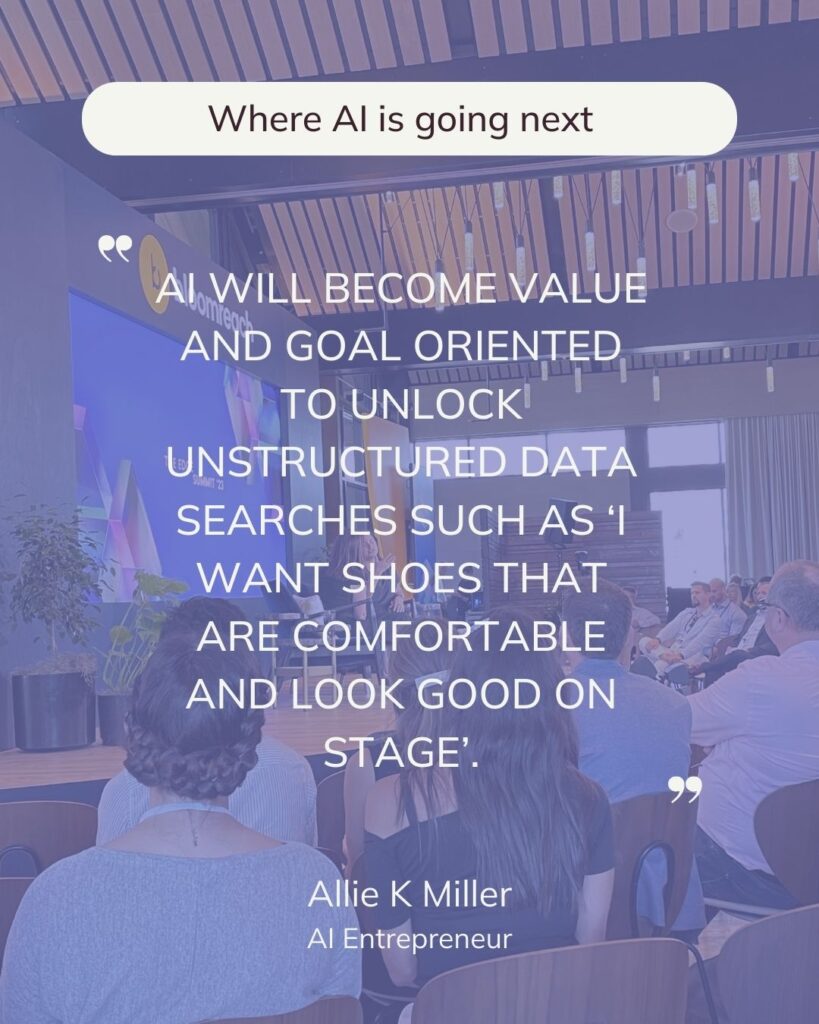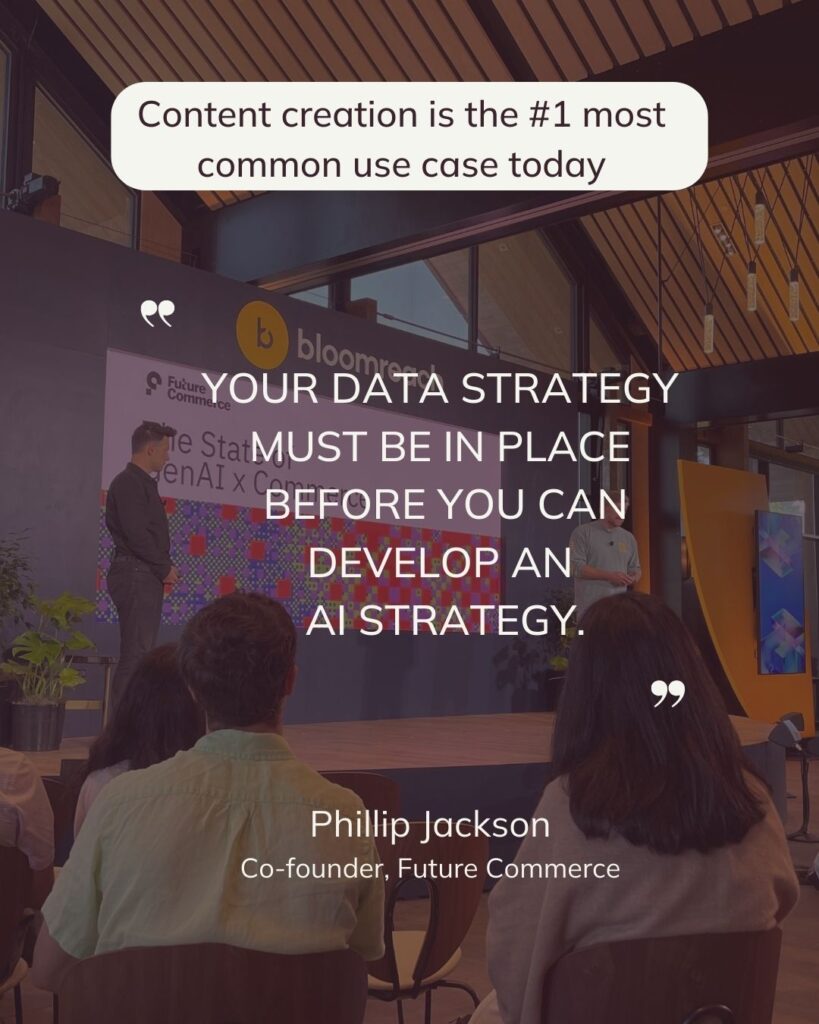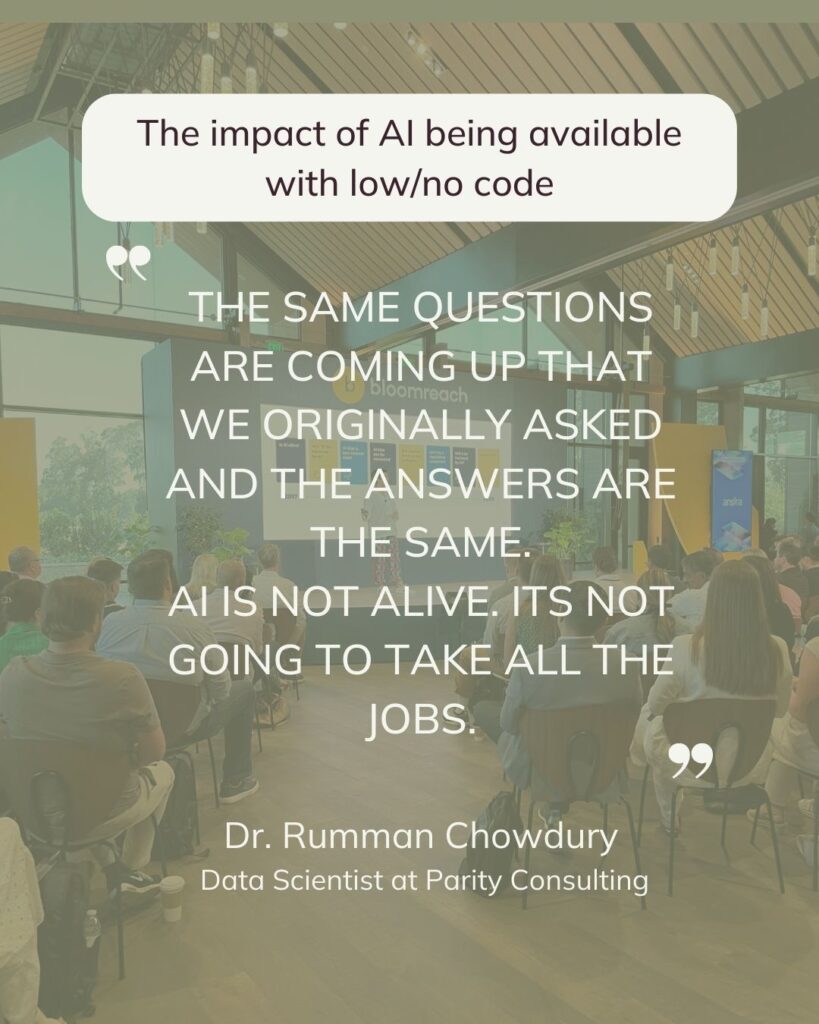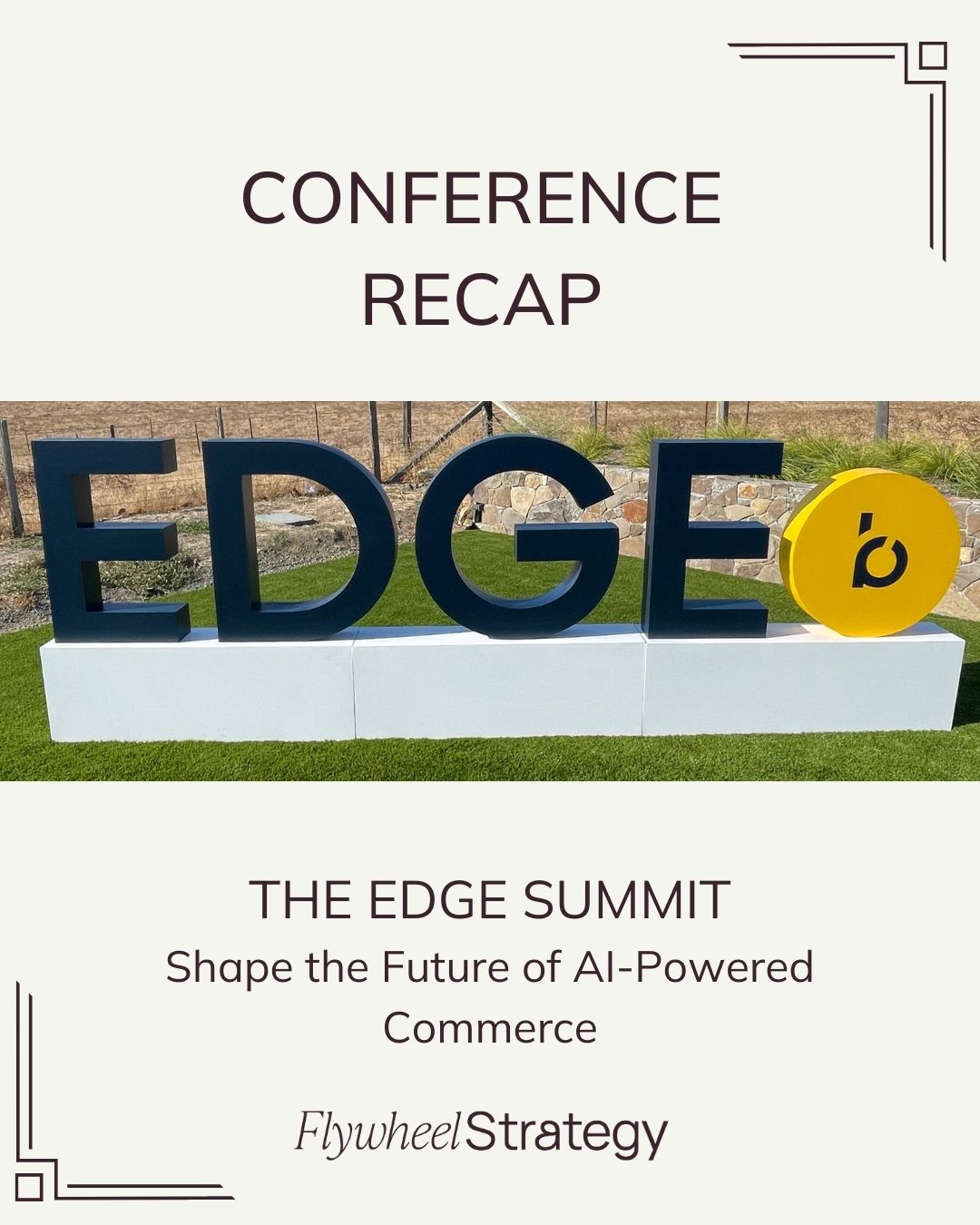WRITTEN BY: KATE MACCABE
How Third-Party technologies are transforming DTC and Ecommerce through Artificial Intelligence
The AI landscape is changing on a daily, even hourly, basis. Luckily for businesses that are tech-enabled, and not necessarily tech companies themselves, third-party technologies are investing heavily to unlock the power of AI. This means your business can reap the benefits of AI without significant exploration, if your business is staying close to the new features your tools and technologies are launching.
In today’s fast-paced digital world, direct-to-consumer (DTC) and ecommerce executives face a multitude of challenges and opportunities. With consumer expectations constantly evolving, staying competitive requires not just embracing technology but also harnessing the power of artificial intelligence (AI). Fortunately, third-party technologies are making it easier than ever to integrate AI into your business strategies, allowing you to deliver better experiences, optimize operations, and boost your bottom line.
Last month our Flywheel Strategy team attended The Edge Summit, a sold-out two day conference hosted by Bloomreach, with a sole focus on how AI will shape commerce in the future.
Across the sessions, here were a few of my favorite takeaways:
- “The same questions are coming up that we originally asked and the answers are the same. AI is not alive. Its not going to take all the jobs.” Dr. Rumman Chowdury, Data Scientist at Parity Consulting
- “AI will become value and goal oriented to unlock unstructured data searches such as ‘I want shoes that are comfortable and look good on stage’.” Allie K Miller, AI Entrepreneur
- “Content creation is the #1 most common use case today. Your data strategy must be in place before you can develop an AI strategy.” Phillip Jackson, Co-founder Future Commerce



From the conference we have two main takeaways:
- Takeaway #1: Third party applications are heavily investing in introducing AI into their platforms. This means your business is probably already AI-enabled in ways that are quietly working for you.
- Takeaway #1: The most meaningful gains for businesses will come from matching Large Learning Models (LLMs) models of public domain intelligence paired with your businesses proprietary data to create a truly custom AI engine to drive your business.
In this comprehensive guide, we delve into the first topic: how third-party technologies are revolutionizing the DTC and ecommerce landscape with AI-driven features. We will explore key innovations from industry leaders, such as UserTesting.com, Yotpo, and Shopify, and provide real-world examples to illustrate how these AI-powered solutions can elevate your business to new heights.
UserTesting.com: Our 5 favorite AI driven features to enhance consumer insights for your business
UserTesting.com is a pioneer in the field of user experience research and optimization, and their adoption of AI has transformed the way businesses understand and interact with their customers. Here are some noteworthy AI features from UserTesting.com:
- Automated Usability Testing: UserTesting.com‘s AI-driven automation streamlines the process of usability testing. By analyzing user behavior, the platform can identify usability issues, providing actionable insights for improvement. For instance, it can flag instances where customers struggle with navigation on an ecommerce site, allowing for targeted enhancements.
- Sentiment Analysis: AI-powered sentiment analysis tools are integrated into UserTesting.com‘s platform to decipher customer emotions and reactions. This technology enables businesses to gauge customer satisfaction and identify pain points in real-time. For example, the tool can detect when users express frustration during a website session, helping businesses address issues promptly.
- Behavioral Heatmaps: UserTesting.com utilizes AI-generated behavioral heatmaps to visualize user interactions on a website or app. These heatmaps highlight areas of interest, drop-off points, and user engagement patterns. This information can guide website redesigns and content optimizations. For instance, identifying the most-clicked buttons or links can inform the placement of crucial elements on an ecommerce site.
- AI-Driven Persona Analysis: The platform leverages AI to build user personas based on real user data. This helps businesses understand their audience better and tailor marketing strategies accordingly. For example, UserTesting.com can identify distinct user segments, such as “budget-conscious shoppers” or “luxury product enthusiasts,” allowing businesses to personalize their messaging.
- Voice of the Customer (VoC) Insights: AI algorithms sift through customer feedback and reviews, extracting valuable insights automatically. This not only saves time but also ensures that no critical feedback goes unnoticed. For example, the system can identify recurring complaints about slow checkout processes and suggest improvements.
Yotpo: Boosting customer retention and engagement success in 5 ways through AI
Yotpo, a leading customer content marketing platform, harnesses the power of AI to help ecommerce businesses drive growth, build trust, and enhance customer engagement. Here are some AI features from Yotpo:
- Review Sentiment Analysis: Yotpo‘s AI analyzes customer reviews to gauge sentiment accurately. This helps businesses understand customer opinions, identify trends, and assess product or service satisfaction levels. For instance, Yotpo can detect positive sentiments in reviews and use them for targeted marketing campaigns.
- Content Moderation: AI-driven content moderation ensures that user-generated content (UGC) remains high-quality and compliant with guidelines. This not only maintains the integrity of your brand but also reduces the risk of harmful content. For example, AI can automatically flag and block offensive language or inappropriate images in product reviews.
- Personalized Recommendations: Yotpo employs AI algorithms to deliver personalized product recommendations to individual shoppers. By analyzing past behaviors and preferences, the platform suggests relevant products, increasing cross-selling and upselling opportunities. For instance, if a customer frequently buys running shoes, Yotpo can recommend complementary running accessories.
- UGC Insights: AI-powered analytics tools extract valuable insights from user-generated content, such as reviews and social media mentions. These insights can inform product development, marketing strategies, and customer service improvements. For example, AI can identify common pain points mentioned in reviews, enabling businesses to address them proactively.
- Social Engagement Automation: Yotpo‘s AI automates social media engagement by scheduling posts, responding to comments, and even analyzing engagement data to optimize posting times. This allows businesses to maintain an active and responsive social presence without constant manual management.
Shopify: Empowering Ecommerce Excellence with AI
Shopify, a global ecommerce platform, is at the forefront of AI integration, empowering businesses to create, manage, and scale their online stores more efficiently. Here are some AI features from Shopify:
- Product Recommendations: Shopify‘s AI-driven product recommendation engine analyzes customer browsing and purchase history to suggest relevant products. This feature enhances the shopping experience by helping customers discover products they might not have found otherwise.
- Inventory Management: AI algorithms predict demand patterns and optimize inventory levels, reducing overstock and understock situations. This not only saves costs but also ensures that products are always available when customers want to buy them.
- Chatbots and Virtual Assistants: Shopify offers AI-powered chatbots and virtual assistants that can handle customer inquiries, provide support, and even assist with order tracking. This improves customer service efficiency and availability, leading to higher customer satisfaction.
- Personalized Marketing: Shopify‘s AI enables businesses to create highly targeted and personalized marketing campaigns. By segmenting customers based on their behavior and preferences, businesses can send tailored messages, increasing the likelihood of conversions.
- Fraud Detection: Shopify employs AI algorithms to detect and prevent fraudulent transactions in real-time. This safeguards both businesses and customers from fraudulent activities, enhancing trust and security.
The rapid advancement of AI technology is revolutionizing the DTC and ecommerce landscape. Third-party technologies, such as UserTesting.com, Yotpo, and Shopify, are at the forefront of this transformation, offering a plethora of AI-powered features to enhance customer experiences, optimize operations, and drive business growth.
By embracing these AI innovations, ecommerce executives can gain a competitive edge, improve customer satisfaction, and boost their bottom line. In a recent study by Future Commerce, 91% of respondents confirmed they are using Generative AI to support day to day tasks. It’s essential to stay abreast of the latest AI developments from your chosen technology providers and implement these features strategically to achieve your business goals in this ever-evolving digital era. AI is no longer a distant future; it’s the present, and it’s here to help you succeed in the world of DTC and ecommerce.

BE THE FIRST TO COMMENT: